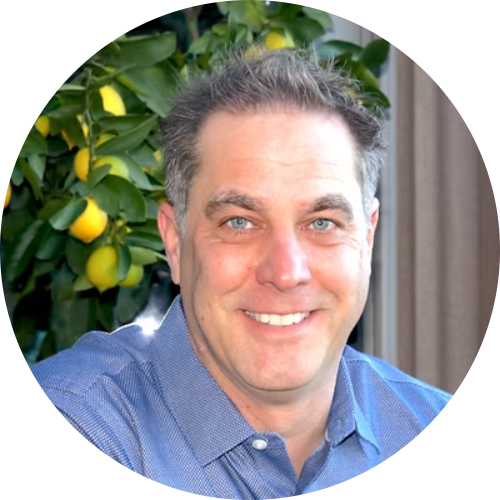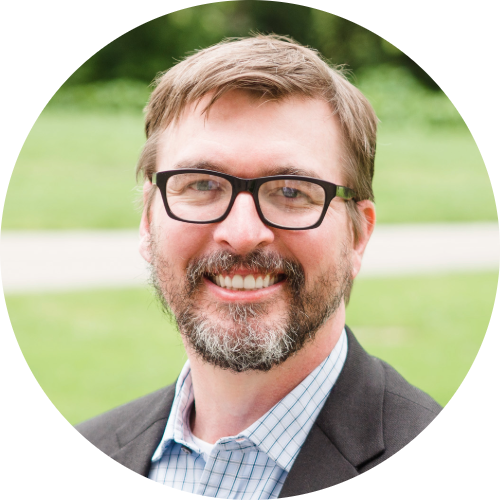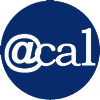From Classroom to Real-World Discovery:
The Launch of a Molecular Medicine Laboratory Course
By Kirsten Mickelwait
Five years ago, Professors Andrew Dillin and Sarah Stanley began teaching a lecture course, MCB 153, to explore the scientific and regulatory processes used to develop therapeutic drugs. The course covers the discovery and refinement of antibiotics, anti-virals, cancer therapies, and CRISPR-based therapies, as well as autoimmune diseases, cardiovascular diseases, and neurological diseases. Dillin employs case studies for each topic to illustrate real-world challenges and solutions to treating complex diseases.

“Those case studies really sparked an interest in my students,” Dillin recalls. “I began to realize that we could actually use that as a form of teaching, to change our emphasis from just learning about the basic science to how molecular medicine is being translated into real-world discoveries.”
Thus was MCB 153L—the companion laboratory course—born last spring, focused on teaching basic methodologies for the discovery of novel therapeutics and therapeutic targets. Taught by Dillin and Professor Jeffery Cox, the C.H. Li Chair of Biochemistry and Molecular Endocrinology, with staff support from Arash Ng, the first lab course comprised 36 students in the immunology and molecular medicine major. The hour-long lecture class meets three days a week and the four-hour lab class meets twice a week.
Since his own days as a student, Dillin says, the speed of basic discoveries being translated into cures has greatly increased. Two of the greatest biomedical discoveries of his generation came out of research here at Berkeley’s MCB: CRISPR-Cas9 gene-editing technology, co-discovered by Jennifer Doudna, and immune checkpoint blockade therapy, discovered by Jim Allison—the latter of which led to several major cancer cures.
Dillin and Cox are well partnered for teaching the course together. As a microbiologist, Cox studies bacterial infections; how bacteria evade the immune system, failed antibiotics, and ways to get antibiotics to work in new ways. In his research on cancers and the genetics of aging, Dillin explores why cancers are resistant to certain drugs and how new drugs can be developed. In the lab course, they use a lot of deep sequencing technology to look at genomes.

Both researchers use similar “thought experiments”—hypothetical scenarios to explore the consequences of a biological theory or principle, a game of “what if" designed to understand complex ideas with real-world experimentation. Both men also both use combination or multimodality therapies in their work.
Dillin and Cox had spent a year designing the course experiments. Cox’s antibiotic resistance experiments proved to flow easily into the classroom setting, but Dillin soon realized that his experimental ideas could not be completed in the allotted timeframe. When he told his colleague, Professor Dirk Hockemeyer, about his concerns, Hockemeyer immediately stepped in with a new set of experiments and ideas. They quickly worked with Ng and Anna Horacek, a graduate student from the Hockemeyer Lab, to design a new experimental plan showing how cancer cells become resistant to common therapies.
“Both Dirk and Anna would routinely come to class to help the students understand the concepts behind the experiment and execute technical details—it was a huge success for the students,” says Dillin. “In its first year, MCB 153L has already embodied a collaborative spirit for education at the highest level.”
The class’s student outcomes can vary widely. “The lowest outcome I expect is that if the student never takes another science class ever again, they can apply their knowledge in a personal context,” Dillin says. “That, when their doctor diagnoses a disease and prescribes a drug, our graduate can understand exactly what’s happening and what the treatment will be.”

The optimum outcome? “Our students are amazing,” he says. “I might teach them about a disease that has no cure, such as Alzheimer's. I tell them: You guys are the ones who’re going to figure this out. That's the highest goal that I have, that some of these students are going to cure some of our hardest diseases.”
The majority of MCB students either attend medical school or graduate school. In both cases, having the hands-on experience that the MCB 153L course provides will put them at a strong advantage over a traditional molecular and cell biology degree.
“One of the major comments I get from our students is, ‘This is exactly why I came to Berkeley,’” Dillin says. “We’re giving them real-world experiences that can’t be found in a textbook. Before, we were arming our students with great knowledge about molecular biology, but they were never able to actually practice it or see what it was used for. Now I can see this lightbulb go on in their head. They're like, ‘This is what I want to do.’”
The student evaluations of the class have been overwhelmingly positive. “The experimental nature of the course is definitely its strong suit,” wrote one student in the class survey. As someone with a research position, this is the only lab course I’ve taken that felt similar to actually conducting research, as we’re discovering new information rather than repeating a tried-and-true experiment. It was definitely one of the top course experiences I’ve had at Berkeley.”
Both Dillin and Cox emphasize the invaluable support provided by Arash Ng, a staff scientist who runs the immunology labs. “He organizes everything but also, conceptually, he knows exactly everything that's going on,” Dillin says. Next year, Ng will help teach the course.
The lab course is presently offered only once a year, but may eventually expand to every semester. “It's about more than just the class,” Dillin says. “It's the whole concept of changing our methods of instruction for molecular and cell biology. This laboratory is one of the first of its kind on campus. I think there will be more to follow across all the sciences here at Berkeley.”
Banner image: Nucleofection of RWPE cells (a prostate cell line) with GFP from MCB 153L's synthetic lethality lab module
Back to Main Fall 2025 Newsletter Page





